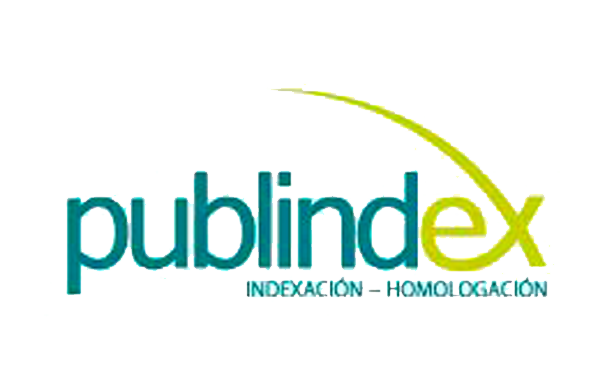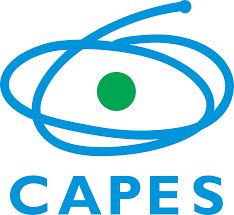Minority Report: the Road to a Deterministic Theory for the Philosophy of Criminal Law
Copyright and Licensing:
Copyright (c) 2022 Opinión Jurídica

This work is licensed under a Creative Commons Attribution-NonCommercial-NoDerivatives 4.0 International License.
- Articles
- Submitted: February 9, 2022
-
Published: December 6, 2022
Abstract
In this article we start from the analysis of the film Minority Report (Steven Spielberg, 2002) in order to study the consequences of the use of Artificial Intelligence as a crime prevention tool. We explore the ethical issues of these technologies as accessories - and protagonists - of contemporary law and raise the challenges for criminal law theory in the face of a possible total prevention of crime. Finally, we conclude with the prospects that these changes may have for governments, their justice administration policies and power relations in the near future of “algorithmic republics”.
References
- Aguilar, S. (2020). La genealogía y la crítica: de Michel Foucault a Enrique Marí. Derechos en Acción, 15(15), 409-409. https://doi.org/10.24215/25251678e409
- Andronico, A. (2021). Digital justice and forms of life. Teoria e Critica della regolazione sociale. https://www.mimesisjournals.com/ojs/index.php/tcrs/article/view/1466
- Bentham, J. (1995). The Panopticon Writings. Verso.
- Bentham, J. (2000). An introduction to the principles of morals and legislation. Batoche Books.
- Böhm, M. L. (2016). Justicia preventiva. Revista penal, (37), 46-60. https://www.academia.edu/download/47335590/Bohm_Justicia_preventiva_Rev_Penal_27_sept_2015.pdf
- Cancio Fernández, R. (2020). ¿Sueñan los jueces con sentencias electrónicas? Análisis Jurídico-Político, 2(3), 145-168. https://doi.org/10.22490/26655489.3854
- Cárdenas Krenz, R. (2021). ¿Jueces robots? Inteligencia artificial y derecho. Revista Justicia & Derecho, 4(2), 1-10. https://doi.org/10.32457/rjyd.v4i2.1345
- Collins, H., & Pinch, T. (1993). The Golem. What everybody should know about science. Cambridge University Press.
- Camacho, D., Luzón, M. V., & Cambria, E. (2021). New research methods & algorithms in social network analysis. Future Generation Computer Systems, 114, 290-293. https://doi.org/10.1016/j.future.2020.08.006
- Corvalán, J. G. (2018). Inteligencia artificial: retos, desafíos y oportunidades-Prometea: la primera inteligencia artificial de Latinoamérica al servicio de la Justicia. Revista de Investigações Constitucionais, 5(1), 295-316. https://doi.org/10.5380/rinc.v5i1.55334
- Dick, P. K. (2002). The minority report. Pantheon Books.
- Echeverría, J. (2019). Conferencias Aranguren ¿Fin de la intimidad? Ensimismarnos: contra las amenazas transhumanistas. Isegoría, (60), 15-50. https://doi.org/10.3989/isegoria.2019.060.02
- Elbert, L. (2000). El gabinete del Dr. Frankenstein. La ciencia y los científicos vistos por el cine. Editorial Fin de Siglo y Facultad de Ciencias (Udelar).
- Falzón, C. (2005). La filosofía va al cine. Una introducción a la filosofía. Tecnos.
- Foucault, M (1995). Discipline and punish: the birth of prison. Vintage Books.
- Foucault, M. (1996). La verdad y las formas jurídicas. Gedisa
- Gazzollo, T. (2019). Minority Report e il crimine senza crimine. Jus (3), 224-251.
- Kleinberg, J., Ludwig, J., Mullainathan, S., & Sunstein, C. R. (2018). Discrimination in the Age of Algorithms. Journal of Legal Analysis, 10, 113-174. https://doi.org/10.1093/jla/laz001
- Kostenwein, E. R. (2021). El castigo, esa otra bestia magnífica. Astrea.
- Kreso, I., Kapo, A., & Turulja, L. (2021). Data mining privacy preserving: Research agenda. Wiley Interdisciplinary Reviews, 11(1), e1392. https://doi.org/10.1002/widm.1392
- Ibarra, E. (2017). Estado, violencia y anarquismo. Bajo Palabra. Revista de Filosofía, 15, 99-116. https://doi.org/10.15366/bp2017.15.008
- Lagua, W. M., Bejeguen, K. P., & Vargas, C. M. C. (2021). Marketing de proximidad: La geolocalización, como estrategia de publicidad en las marcas de centros comerciales en la ciudad de Ambato. 593 Digital Publisher CEIT, 6(2), 229-241. https://doi.org/10.33386/593dp.2021.2.487
- Lin, L., & Hou, Z. (2020). Combat COVID-19 with artificial intelligence and big data. Journal of Travel Medicine, 27(5), 1-4. https://doi.org/10.1093/jtm/taaa080
- Martínez García, J. I. (2018). Derecho inteligente || Smart Law. Cuadernos Electrónicos de Filosofía del Derecho, (37), 95-114. https://doi.org/10.7203/CEFD.37.11440
- Mira Mira. J. (2008). Aspectos conceptuales de la Inteligencia Artificial y la Ingeniería del Conocimiento. In J. T. Palma Mendez. & R. Marín Morales (coords.) Inteligencia Artificial: Métodos, técnicas y aplicaciones (pp. 3-30). McGraw-Hill.
- Miró Llinares, F. (2018). Inteligencia artificial y Justicia Penal: Más allá de los resultados lesivos causados por robots. Revista de Derecho Penal y Criminología, (20), 87-130. https://doi.org/10.5944/rdpc.20.2018.26446
- Salvi, N. (2020). El utilitarismo como ética configurable en la inteligencia artificial. In G. H. Hartmann, S. Reimann Patz & T. Covatti Piaia (orgs.) Anais do I Simpósio de Inteligência Artificial, Proteção de Dados e Cidadania (pp. 89-98). Universidade Regional Integrada do Alto Uruguai e das Missões.
- Santy, C., & Soelistyo, L. (2014). The Panoptic Sibyl System and the Dystopia in Gen Urobuchi’s Psycho Pass. Kata Kita, 2(1). https://katakita.petra.ac.id/index.php/sastra-inggris/article/view/2996
- Stănilă, L. M. (2020) Minority Report: AI Criminal Investigations. In G. Ilik & A. Stanojoska (eds.) International Scientific Conference “Towards a Better Future: Human Rights, Organized Crime and Digital Society” (pp. 142-154). Faculty of Law - Kicevo, University “St. Kliment Ohridski” - Bitola Center for Scientific Research at the Faculty of Law - Kicevo.
- Quian Quiroga, R. (2018). Neurocienciaficción. Cómo el cine se adelantó a la ciencia. Sudamericana.
- Van Natta, M., Chen, P., Herbek, S., Jain, R., Kastelic, N., Katz, E., Struble, M., Vanam, V. & Vattikonda, N. (2020). The rise and regulation of thermal facial recognition technology during the COVID-19 pandemic. Journal of Law and the Biosciences, 7(1), 1-17. https://doi.org/10.1093/jlb/lsaa038
- Velázquez, H. J. F. (2021). Esclareciendo el concepto de lógica deóntica. Andamios, 18(45), 457-485. https://doi.org/10.29092/uacm.v18i45.826
- Valencia Grajales, J. F., & Marin Galeano, M. S. (2017). El panóptico más allá de vigilar y castigar. Revista Kavilando, 9(2), 511-529. https://nbn-resolving.org/urn:nbn:de:0168-ssoar-63753-2
- Velo Dalbrenta, D. (2013). Del diritto penale come esperienza. Tre studi inattuali. Cleup.
- Velo Dalbrenta, D. (2019). Criminalità come destino?: Philip K. Dick e lo straniante mondo di Minority Report. Teoria e Critica della regolazione sociale, 1(18), 153-173. https://mimesisjournals.com/ojs/index.php/tcrs/article/view/57
- Zavadivker, Nicolás. (2011). La ética y los límites de la argumentación moral: el desafío del emotivismo. Facultad de Filosofía y Letras UNT.
- Završnik, A. (2021). Algorithmic justice: Algorithms and big data in criminal justice settings. European Journal of criminology, 18(5), 623-642. https://doi.org/10.1177/1477370819876762
How to Cite
Salvi, N., & Nigri, S. (2022). Minority Report: the Road to a Deterministic Theory for the Philosophy of Criminal Law. Opinión Jurídica, 21(46), 1-18. https://doi.org/10.22395/ojum.v21n46a2
Downloads
Download data is not yet available.















